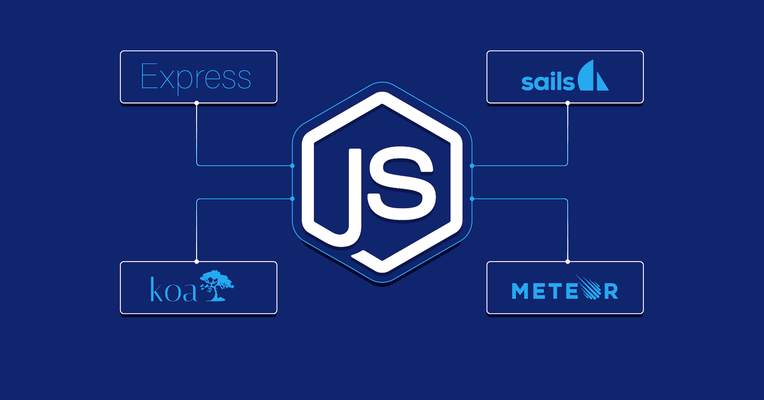Demand for Meteor Developers Remains Steady
Within today’s massive JavaScript/TypeScript ecosystem, Meteor remains a cutting-edge, full-stack development technology that seamlessly integrates with leading front-end JavaScript frameworks like React, Vue.js, and Svelte. Thanks to the platform’s productivity focus, Meteor coders continue to be relevant to businesses building real-time web and mobile applications. This is especially true for companies building both web and mobile products as Meteor enables rapid development of both with a single codebase, an appealing option for startups and small teams.
Despite the platform’s maturity, hiring is a challenge: There are far fewer web developers with direct experience in Meteor than, for example, React or Vue.js. But since it integrates tightly with MongoDB, Express.js, and Node.js, software engineers experienced with this particular back-end stack may be able to leverage the platform to build scalable, real-time applications, since they should have an easier time onboarding. Hiring a new team member for this can add value, particularly when creating apps requiring live updates, such as collaborative tools or eCommerce platforms.
This guide will explore what makes a great Meteor developer, how to identify the right candidate for your project, and strategies for writing compelling job descriptions. It will also discuss top interview questions that can help ensure you hire Meteor developers who can deliver high-quality results for your project.
What Attributes Distinguish Quality Meteor Developers From Others?
Meteor developers are full-stack developers who build apps using Meteor’s particular cross-platform tooling, curated ecosystem, and core features like reactive data binding. Thanks to Meteor’s so-called Methods, which leverage modern WebSockets-based remote procedure calls (RPCs) instead of the age-old HTTP equivalent, the result is often a cleaner codebase with less boilerplate than a typical REST API architecture might foster.
Meteor programmers use JavaScript (or TypeScript) and work directly with its integrated technologies: Frameworks like React or Vue.js on the front end and Express, Node.js, and MongoDB on the back end. Known for its real-time reactivity, Meteor allows for highly interactive applications that provide instantaneous user interface (UI) updates, significantly enhancing the user experience (UX). For example, a Meteor expert can implement live chat or collaborative tools that are not only free from their own performance bottlenecks but also robust against spotty WiFi.
Experts know the ROI this particular open-source tech stack can bring and how to facilitate the development process, if needed, to achieve it. They know the pros and cons of deploying to Galaxy, a Meteor-specialized cloud service, compared with more prominent providers like AWS, GCP, and Azure. They know how to build with the platform’s Cordova integration in mind so that they can create a mobile application for iOS or Android from the same codebase as a web app. Their extensive experience in software development lets them avoid common mistakes in all the technologies involved; they have a track record of delivering high-quality products that satisfy users and save future development costs thanks to their clean, maintainable code.
How Can You Identify the Ideal Meteor Developer for You?
Understanding your project’s needs is always the first step. However, you may need to be open to creative solutions to hire MeteorJS developers in today’s economy. The good news is that Meteor itself is just one skill among many needed to develop a Meteor app. Skills in JavaScript/TypeScript, in your project’s front-end framework (React, Vue.js, etc.), in Express and Node.js on the back end, and in MongoDB (and possibly others) for data storage are just as necessary. So a practical alternative may be to find and hire a nonspecialist full-stack developer who meets all your other requirements and then train them in Meteor via a senior member of your team or an outside development company.
Either way, start by defining the skills gap on your development team. For instance, say you’re building a real-time eCommerce platform that already relies on Angular, but your Angular talent will soon be leaving, and you want a full-stack developer with project management and DevOps experience to carry the app to the finish line. You’ll likely need candidates skilled in not only Angular but also MongoDB (or whichever database your project uses) and reactive programming. In that case, you may need to consider Meteor framework experience a bonus.
For any use cases involving mobile app development, prioritize candidates with 1-2 recent years of experience with Cordova — since it has first-class support in Meteor, unlike React Native and other alternatives — and whichever of iOS and/or Android your app will support.
No matter the project, it’s important to have a sense of how much your company has already invested in the choice and usage of each technology involved, so you know where you have flexibility in your hiring decisions.
One last facet to consider is talent seniority; your needs here are based on the scope of your project and of the new hire’s role within it. Junior developers can handle basic front-end development, minor back-end improvements, or prototyping, but may need technical supervision. Mid-level talent should be able to handle greenfield web application development, but their architecture may not be scalable, which could be costly in the long run. Senior developers can own the entire application development lifecycle, ensure robust infrastructure and maintainable codebases, and mentor other team members as needed.
How to Write a Meteor Developer Job Description for Your Project
An accurate and persuasive job description is critical to attracting the right talent. Start with a clear project overview, outlining its goals and expected outcomes. Specify the technical skills required, such as proficiency in JavaScript, Node.js, MongoDB, and front-end frameworks like React or Vue.js. If relevant, highlight experience with real-time web applications or mobile app development.
Define the role’s responsibilities, such as designing user interfaces, optimizing performance, and managing back-end services. Mention any preferred tools or workflows, like Docker for containerization, Cordova for mobile deployment, or AWS for cloud infrastructure. Clearly state the experience level needed, whether you require a junior developer for smaller tasks or a senior professional to lead the development team.
Provide details about your company, including its mission and the type of projects typically undertaken. This information helps candidates assess whether the role aligns with their career goals. Conclude with specifics about employment type (e.g., full-time or contract), time zone preferences, and whether an NDA is required.
What Are the Most Important Meteor Developer Interview Questions?
Since Meteor development relies heavily on several other technologies, an effective interview will incorporate interview questions about JavaScript, Node.js, and Express.js; and, as applicable to your project, TypeScript, MongoDB, GraphQL, mobile apps, and the relevant client-side framework (e.g., React, Vue.js, or Svelte). If your candidate promises Meteor experience, the following are good conversation starters.
How would you handle user authentication and authorization in a Meteor app?
Meteor is known for its first-class support for these cases, so consider it a red flag if a candidate proposes a truly home-grown approach to authentication. Instead, it’s standard practice to leverage the meteor add accounts-ui command alongside an OAuth login provider package that inherits from the built-in accounts-base, then customize from there as required.
As for authorization, good answers will mention managing user roles and permissions with the alanning:roles package.
Would you integrate Meteor with a relational database like MySQL for [your project’s specific use case]?
Meteor has built-in support for MongoDB, but real-world projects often require integrating with relational databases like MySQL for legacy systems or specific business needs. Candidates should be able to explain clearly why (or why not) MySQL should be chosen over MongoDB for your project, mentioning performance, schema management, and when data normalization can be an important advantage, like in eCommerce.
If candidates propose using both, they should be aware of the importance of data synchronization. Avoid candidates who claim that Meteor cannot work with relational databases.
When would you transition a Meteor app from Blaze to another front-end framework?
Blaze is Meteor’s original, efficient, reactive template rendering engine (not to be confused with the unrelated CSS framework, Blaze UI). Blaze is simple — but sometimes too simple, prompting teams to use Meteor with other frameworks like React, Vue.js, or Svelte. Any technology choice involves trade-offs, and they can vary according to your app’s scope, use case, and how far along its implementation is. It’s helpful if your existing development team can be involved in this discussion: It will shed much more light on the candidate’s knowledge, communication skills, flexibility, and, quite probably, their ability to handle differences of opinion.
Be hesitant with candidates who dismiss Blaze a priori or without understanding its use cases, as well as those who propose a complete rewrite without being able to describe an incremental migration strategy.
Why Do Companies Hire Meteor Developers?
The use of Meteor remains a smart path toward the optimization of web and mobile app development. Companies hire Meteor developers to minimize time to market by removing not only common boilerplate but also the redundancy that typically occurs between client- and server-side functionality, and especially between an app’s web and mobile codebases.
With its active development having included a major release (Meteor 3) in 2024, the platform’s compatibility with current versions of integrated technologies like Node.js has likely been ensured for several more years, at least. The strategies outlined in this guide will help you invest in the right developers for your project so they can leverage Meteor to drive your company’s success.



























